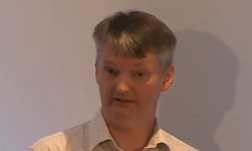Description:
In January 2016, the CEO of NETWORKS Sullivan Partnership, the economic development organization that serves Bristol, Bluff City, Kingsport and Sullivan County, contracted a viral infection called aspergillosis that landed the 52-year-old in Holston Valley Medical Center. He was placed in a drug-induced coma.
The experience was a “gift” that gave him a deeper sense of love, family and community, Walker said.
“I don’t get sick often,” he said Monday from NETWORKS’ Kingsport office. “I don’t miss work. I literally never missed a day of high school. So when I woke up in the intensive care unit hooked up to a ventilator with my mom — who lives six hours away — sitting beside me, I was confused to say the least.”
Aspergillosis is caused by a type of mold that, when left untreated, is usually fatal, according to the Mayo Clinic’s website. Walker, who had been sick since August 2015, explained that his doctor wasn’t looking for the virus because it normally attacks those with weakened immune systems.
“An infectious disease specialist told me that I was really not even a candidate to get the virus,” Walker said. “It usually only affects people whose immune systems have been compromised in some way — people in poor health or certain types of cancer survivors. We’ll probably never know how I got it — but fortunately they knew how to cure it — which is the thing that I’m really thankful for.”
Walker said he had been working long hours before he started feeling ill, but because he was pretty healthy he chalked his symptoms up to simple fatigue. After a few weeks of not getting any better, he visited an urgent care, where he was treated for allergies. By the beginning of winter, he was still sick so he made an appointment with his doctor.
“By November, I was so sick it was a struggle for me to climb the steps to my loft,” he said. “And once I was inside I would fall out from exhaustion so I went back to the doctor. He’d treat me and I’d get better for a little while. Then I’d get sick again only I’d be worse than I had been before. By January, there were several nights that I could barely catch my breath. One night about 11 o’clock I called Brian [Ritz, NETWORKS program manager] and asked him to take me to the hospital because it was so bad.”
Ritz, who arrived within minutes, said there was no way to describe the way he felt when he got Walker’s call.
“I was extremely worried when he called me,” he explained. “But when I saw Clay I knew he was a pretty sick guy and needed medical attention quickly.”
Walker was emotional as he recalled that night’s events.
“Brian took one look at me and said he was going to call an ambulance,” he said. “When the EMTs put the oxygen mask on me it was like giving a man in the desert a drink of water. The doctors told me that call to 911 probably saved my life.”
The last thing he remembers that night was seeing the ceiling and the lights in the emergency room. He gave Ritz his wallet and phone and asked him to check on him the following morning.
“My next conscious experience was waking up with my mother sitting beside my bed. Seeing the confusion on my face — she asked me what day it was and I didn’t know. That’s when I found it was Thursday and I had been in an induced coma for six days.”
That’s when he began to realize what it meant to feel the prayers of others, he said.
“I hope that’s one thing I never forget,” he said. “I could feel the prayers that had been prayed. Feeling those prayers was as real as feeling this table in front of me. I wish I had the words to adequately describe it.”
Walker said the first two weeks after he “woke up” were spent in the hospital. When he was released, he faced two months of recovery at home.
“When I started feeling better, the first person I called was my son, Ty,” said Walker again holding back tears. “I was lying in the hospital with this gross, coughing up this gross black stuff. I was thinking that I didn’t care if I got better. Then I thought about my son — he’s going to turn 26 next month — and I thought, ‘he’s not ready to be without a dad.’ He’s the most important person in the world to me. Thinking about him is what got me through this.”
He added that there was an overwhelming outpouring of support for him and his family during his hospital stay and illness.
A fan of country star Tim McGraw, Walker said there are two songs that he listens to differently since his ordeal. One is called “If I die today” the other is “Live like you were dying.”
“One says I wonder who I’d see crying standing over me and who would just send their regard,” Walker said. “The other talks about being the kind of friend I’d like to be. So now I hug people and tell them I love them more often than not. I’ve learned that it’s stupid to not to tell people how you feel about them. I also found out that the people that I considered friends considered me as a friend as well. And that means a great deal.”
Walker applauded his staff for the work they did while he was recovering and called them an amazing team.
“I’ve been in economic development for 20 years and this has been the best professional year of my life,” he said.
Walker said it’s unlikely he’ll ever get the virus again but he’s taking better care of himself so he can fulfill his purpose while he’s still here.
“I’ve lost about 18 pounds and am continuing to lose,” he said. “I work out and have gotten my blood pressure down. It’s something I have to work at but it’s worth it. God allows things in your life. And when those things happen we’re supposed to do something with it.”
He smiled when he said he believes that his purpose is to be a dad to his son, make an impact on this community and people in his life.
“We’re not promised tomorrow or even the end of the day,” he said. “So, what are we going to do while we’re here? I think it has everything to do with helping people. That doesn’t have anything to do with your bank account or accolades. It has everything do with our relationship to others.”
Medical and Patient education videos
-
Title
Description
-

This patient had severe kyphoscoliosis as a child with insertion of spinal rods in early adulthood. She is a life-long non-smoker. She first presented in 2001 with an irritating cough and several treatments with antibiotics failed to alleviate it.Aspergillus precipitin titre was high and she was initially diagnosed with chronic pulmonary aspergillosis with one cavity containing an aspergilloma. This patient developed resistance to all azole therapies.
-

Sources of aspergillus and how can I clean up at home? By Professor Malcolm Richardson
-

Informal recording of a meeting for patients. By Philip Langridge Aspergillosis Specialist Physiotherapist.
-

Simple steps for patients to loosen phlegm in the lungs and easily produce sputum samples for testing in the clinic. Designed for aspergillosis patients or any patients with respiratory illnesses.
-

A double lung transplant has been carried out on a young cystic fibrosis patient, who had more than 10 aspergillomas in her lung. Clip shown on BBC North West news shows an interview with Becky and Prof Denning.
-

Short history from patient’s wife. Brief history and experiences of attending National Aspergillosis Centre
-

Immunodiffusion technique to test for serum antibodies in patients – describes how to set up a test for the presence of antibodies in serum which are specific to various fungal pathogens. The technique is used to test and measure titres of these antibodies in the serum of infected patients.
-

21-year-old medical student Jo Armstead has made a major discovery, which will help doctors better able to diagnose and treat patients with Cystic Fibrosis (CF). Jo spent hundreds of hours accessing data from 30 countries to discover that there are over 75,000 people with the genetic disorder, of whom half are over 18 years – with 50 per cent infected by the fungus, Aspergillus. Professor David Denning, Director of the NHS National Aspergillosis Centre and Professor of Infectious Diseases in Global Health at the University of Manchester explains: “The life expectancy of people with CF has been increasing, but aspergillosis has a major negative impact on many. By painstakingly crunching the numbers, Jo has helped us better understand the scale of the challenge which will lead to better diagnostics and treatment strategies.” Prof Denning and Jo were interviewed on BBC-1 Breakfast last Sunday June 29th.
-

Literary event – Manchester Literature Festival hosted at Manchester Museum to increase awareness of Aspergillosis, in October 2013. Exploring literature, music and medicine.
-

Fungi are eukaryotic organisms which possess a unique cell wall and cell membrane that can serve as targets for antifungal agents. The echinocandin class of antifungal agents target the cell wall of fungi. Watch this animation for more information.
